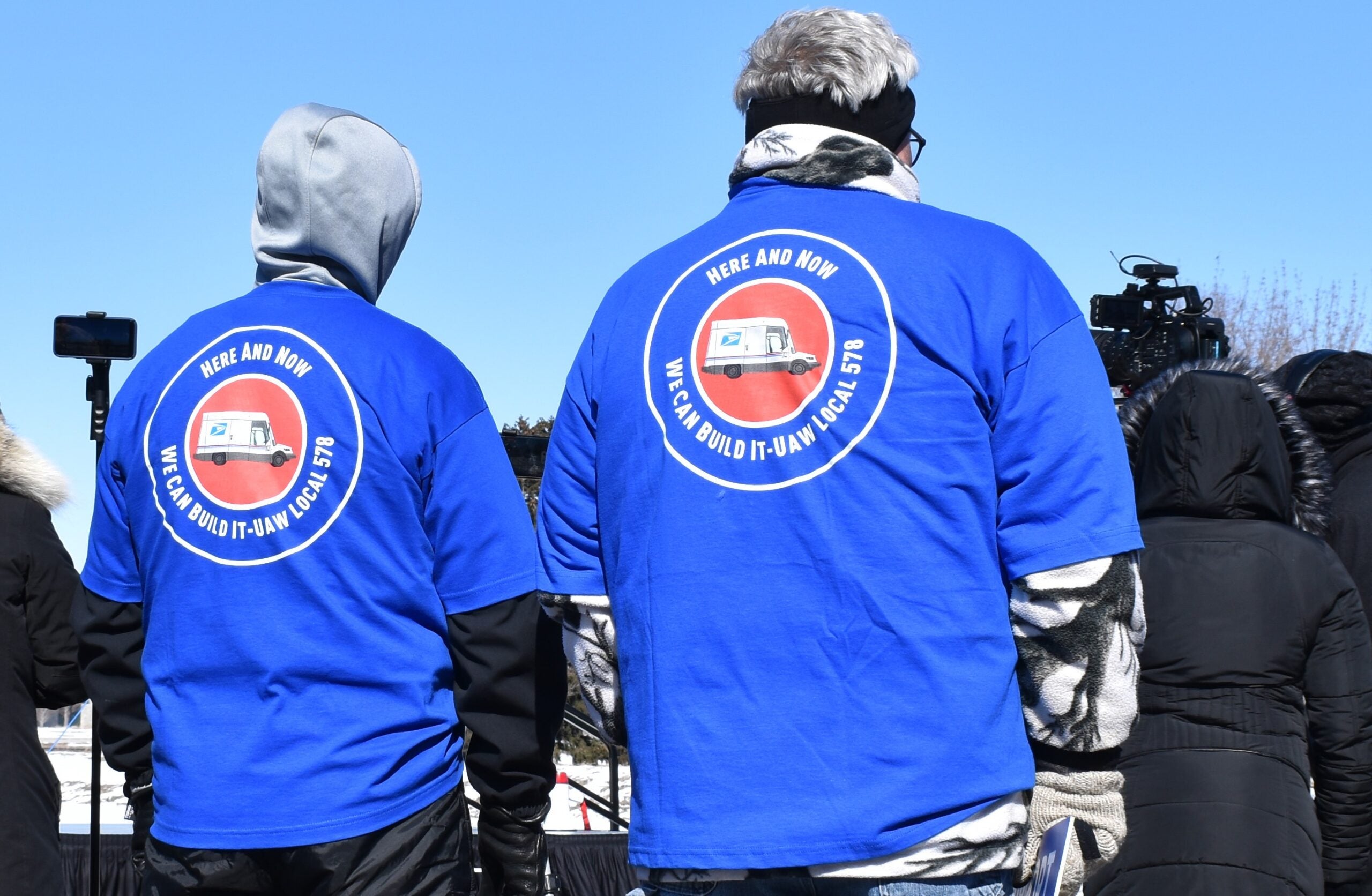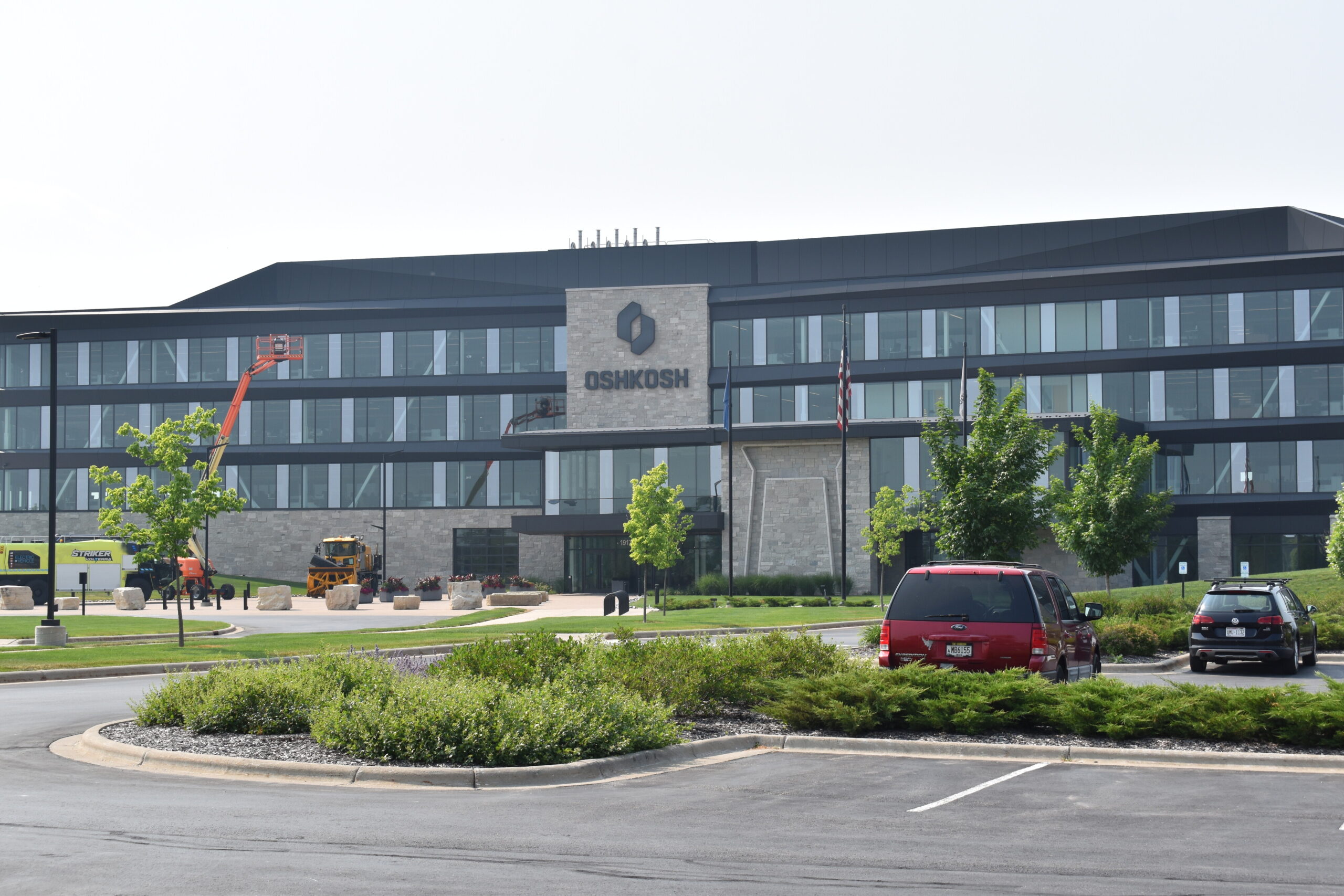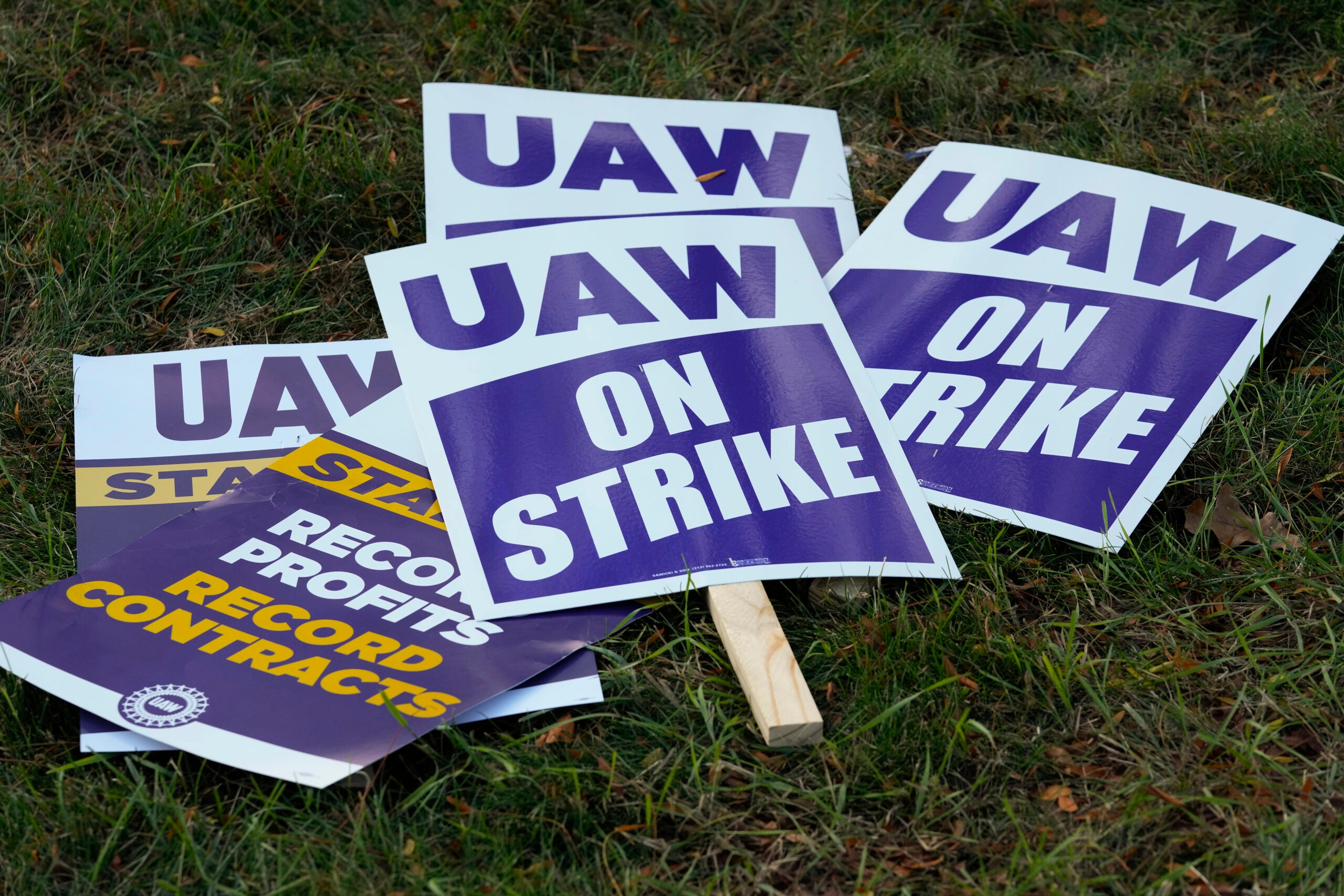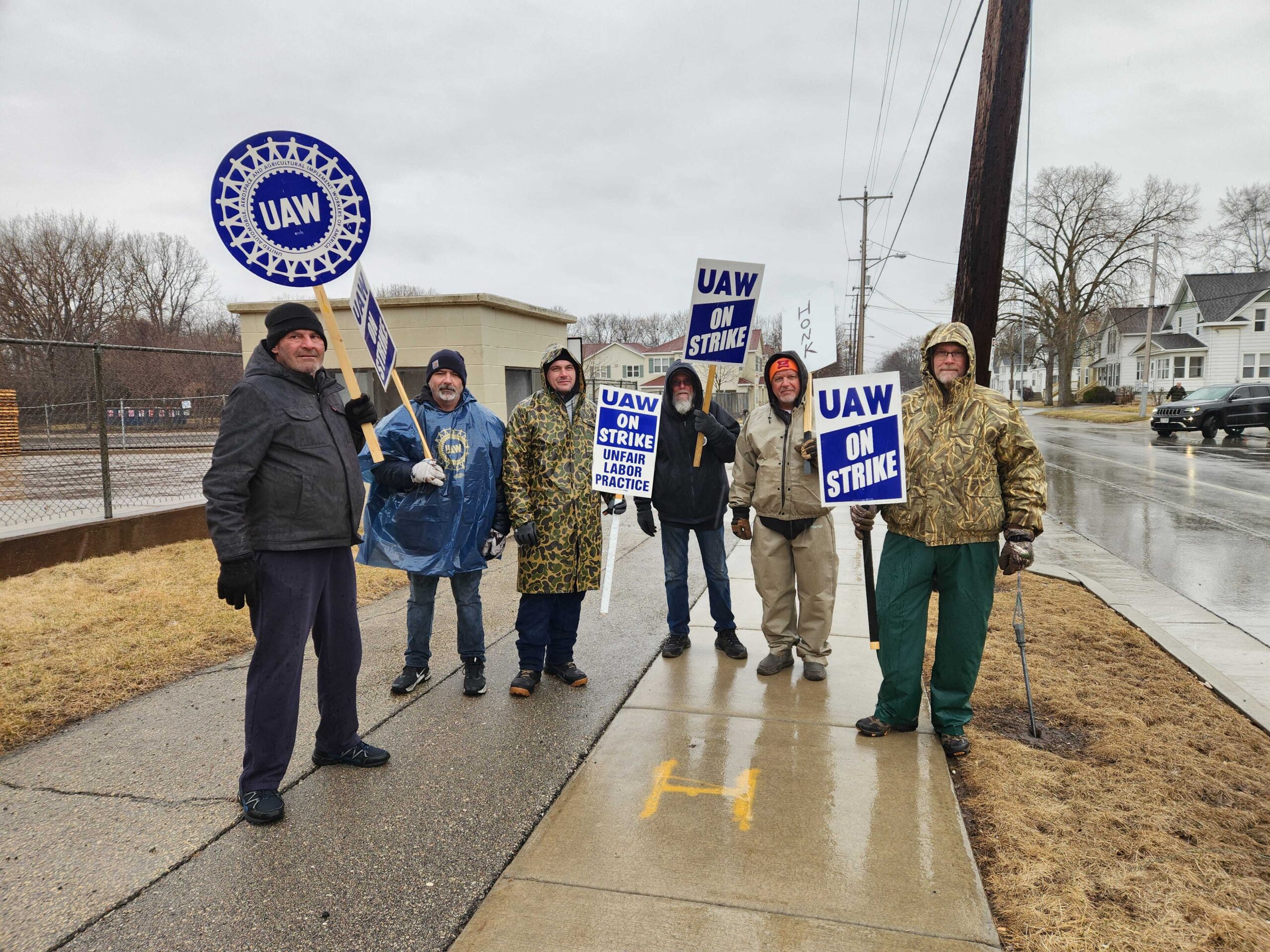Three federal lawsuits against the U.S. Postal Service are the latest battle in a fight Wisconsin workers say they hope will bring the production of new postal vehicles to the state.
The lawsuits were filed late last month by environmental groups, the United Auto Workers and 15 states. The groups say the Postal Service failed to clear environmental regulations before it awarded a multi-billion-dollar contract to Oshkosh Defense to build what it calls its “Next Generation Delivery Vehicle.”
When the Oshkosh Corp. subsidiary won the contract in early 2021, it was considered a major economic boost for Wisconsin. Months later, the company announced that it would build the vehicles in South Carolina instead.
News with a little more humanity
WPR’s “Wisconsin Today” newsletter keeps you connected to the state you love without feeling overwhelmed. No paywall. No agenda. No corporate filter.
Union leaders and Democratic politicians have blasted that decision, which means a lost opportunity to add more than 1,000 jobs in the Fox Valley. Unlike the jobs in Oshkosh, the South Carolina workforce wouldn’t be unionized.
Now, a federal complaint filed by the Natural Resources Defense Council and the United Auto Workers union is finding fault with Postal Service promises to initially build only 10 percent of the new vehicles to be electric. The suit claims the Postal Service’s decision is “based on unlawfully deficient environmental analysis conducted after the Postal Service had already decided on a course of action.”
California is one of the states suing the Postal Service in a separate lawsuit. Its attorney general, Rob Bonta, said the service is “doubling down on outdated technologies that are bad for our environment and bad for our communities.”
The Postal Service “conducted a robust and thorough review and fully complied with our obligations” under federal environmental law, USPS spokesperson Kim Frum said in a statement.
“The Postal Service is fully committed to the inclusion of electric vehicles as a significant part of our delivery fleet,” Frum said.
Wisconsin isn’t a party to the environmental lawsuits. But Wisconsin workers have a keen interest in its outcome, said Bob Lynk, president of United Auto Workers Local 578. He said Oshkosh Corp. has its Wisconsin workforce to thank for the fact that it got the contract in the first place.
“Their whole reputation and why they have this contract was because of us,” Lynk said. “They pushed Oshkosh, they pushed the facilities and then they moved (production). And that’s wrong.”
In congressional hearings last month, U.S. Rep. Rashida Tlaib, D-Mich., called the production decision a “bait and switch that betrays the workers that made the company what it is today.” In that hearing, a Postal Service executive admitted that Oshkosh Defense decided to produce the vehicles in South Carolina “shortly before the public announcement” of the contract, well before the company announced the decision.
Even if the lawsuit succeeds in forcing the Postal Service to increase the share of the new vehicles that are electric, it’s not clear that Oshkosh Corp. would locate any of its production in Wisconsin. In a statement to Wisconsin Public Radio, Oshkosh Defense said, “Oshkosh can produce any mix of (electric and internal combustion) vehicles … that USPS wants.”
“Hiring has begun and facility preparations are well underway to ensure Oshkosh will meet contractual deadlines for vehicle production to begin in 2023,” company spokesperson Alexandra C. Hittle said in an email.
For Lynk, the fight is existential for his union. Most of the 1,500 UAW members at Oshkosh Defense are not working 40-hour weeks, he said, and the company is removing shifts as it winds down a government contract to produce tactical military vehicles.
The jobs that would have come from building electric postal vehicles in Wisconsin would have secured the union’s future, he said.
“That’s where the world’s going right now,” Lynk said. “This is a big opportunity to get it started, get it right. To build cleaner air, better vehicles, make them (electric vehicles), and they should be union-made.”
Wisconsin Public Radio, © Copyright 2025, Board of Regents of the University of Wisconsin System and Wisconsin Educational Communications Board.







